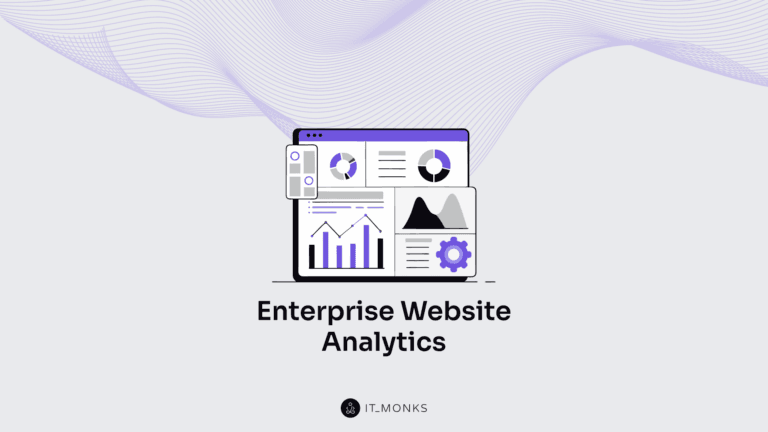How Can AI Help in Cybersecurity
Table of Contents
Artificial Intelligence (AI) has immense power in cybersecurity. It simulates the human brain and lets us better control online security threats. When harnessed correctly, businesses can identify new threats and better protect sensitive information. A midsized company gets an average of 200,000 security alerts daily. The most advanced cybersecurity teams cannot handle many such signs independently. That is why they need to look for innovative solutions to help them notice and manage security attacks. By using Artificial Intelligence (AI) in cybersecurity, security experts get strong support from network security and machine learning solutions, helping them protect organizations from cyberattacks. How? This article takes a closer look at artificial intelligence and the role of AI in cybersecurity.
AI Provides Better Overall Security
Businesses face different attacks that hackers modify from time to time. It makes it difficult for brands to detect malware attacks and prioritize them. For example, your company might need to deal with the denial-of-service, phishing, pharma hacks, or other attacks taking place simultaneously. They all carry more or less equal risks to your company. However, you must know how to prioritize such risks to understand what you deal with first of all. The deployment of AI in your company’s cybersecurity lets you detect all malware attacks, set priority, and take the right steps for their prevention.
AI Improves Over Time
As the name suggests, Artificial Intelligence is an intelligent solution that can improve over time. It uses machine learning to analyze and learn the patterns of business networks’ behavior and clusters them. Afterward, it detects all deviations from the norm before it responds to them. The ways that AI learns over time help improve the company’s cybersecurity in the future. The fact that AI keeps on learning and improving makes it more difficult for hackers to beat it.
AI Detects Unknown Threats
Hackers launch hundreds of new attacks yearly, making it difficult for humans to detect and fight them all. When a network becomes a victim of an unknown threat, it causes special damages before identifying and preventing them. As attackers use new techniques and approaches to engineering malware attacks, AI has proven to be one of the best technologies for managing unknown threats.
AI Delivers Better Vulnerability Management
An average company faces an impressive number of threats daily. To remain malware-free, they need to promptly detect, identify, and prevent hazards. It has proven to be way more effective and reliable to manage vulnerabilities through AI in cybersecurity networks of companies of different sizes. Artificial Intelligence helps businesses focus on vital security tasks by identifying and solving weak points in the companies’ computer systems. Simply put, AI takes care of managing security vulnerabilities in time.
Handling Duplicative Cybersecurity Processes
Hackers re-release malware attacks. However, the security tactics always remain the same. It may be a tiresome and boring process to handle such security tasks. To ensure that you do not miss a thing, you’d better rely on AI. It can manage duplicative cybersecurity processes and prevent malware threats regularly. By using AI in cybersecurity, you get more than just scanning and preventing attacks. Artificial Intelligence takes care of running in-depth analysis to prevent and fix security holes.
Securing Authentication
Hackers use brute force attacks to access companies’ networks. It puts the whole network at risk when hackers successfully enter a user account. Most websites request users to fill in their username and password to access the admin area. However, it’s not enough to protect sensitive information stored on your company’s site (especially if your site features contact forms collecting users’ private details). While some websites limit the number of login attempts to remain malware-free, others adopt AI to keep user accounts resistant to hacking attacks. Artificial Intelligence secures authentication by using such tools as CAPTCHA, facial recognition, fingerprint scanner, and other features verifying whether the log-in attempts are genuine or not.
Examples of Companies Having Adopted AI in Cybersecurity
One of the best ways to learn how your company can adopt AI in cybersecurity is to see examples of other companies that have already succeeded in this field. Keeping this in mind, let’s see the examples of how Google and IBM teams successfully adopted artificial intelligence into their networks.
It’s been more than 18 years since Google implemented the machine learning techniques into Gmail. Gmail uses AI machine learning to filter emails and block more than 100 million spam messages daily. Today, Google uses AI in almost each of its services. It makes heavy use of deep learning algorithms that allow the search engine to do more in-depth adjustments as they evolve.
IBM Watson
IBM Watson uses machine learning to detect malware and threats in non-traditional scenarios. According to Koos Lodewijkx, vice president and chief technology officer of security operations and response at IBM Security:
“A lot of work that’s happening in a security operation center today is routine or repetitive, so what if we can automate some of that using machine learning?”
These are only two examples of many other ways how companies can deploy AI in cybersecurity. Cybersecurity is such a sprawling field that no single vendor can address every simple threat or concern. The company should prioritize its most pressing cybersecurity concerns and find a vendor that closely aligns with those needs by choosing a vendor.
How Can Hackers Use AI
While it’s more or less clear how companies can use AI to protect their networks, we shouldn’t forget that hackers can also use the same AI techniques to attack your digital space. With that said, let’s consider how attackers can use AI to their advantage.
- AI and machine learning guard company networks against malware attacks. However, hackers can stir up security algorithms to target the warning flags they are looking for.
- Hackers can also use AI to break up defenses and develop mutating malware that adjusts to the environment, thus avoiding detection.
- Unless there are big volumes of data and events, AI may deliver inaccurate results.
Bottom line
Though it’s rather challenging to keep your company’s data protected against malware in the modern world, it’s still possible to strengthen the security infrastructure by implementing AI systems. There are evident benefits of using artificial intelligence, though businesses should also play safe as adversaries can also use the same AI tricks.
Contact

Send a Project Brief
You are currently viewing a placeholder content from Facebook. To access the actual content, click the button below. Please note that doing so will share data with third-party providers.
More InformationYou are currently viewing a placeholder content from Instagram. To access the actual content, click the button below. Please note that doing so will share data with third-party providers.
More InformationYou are currently viewing a placeholder content from X. To access the actual content, click the button below. Please note that doing so will share data with third-party providers.
More Information


